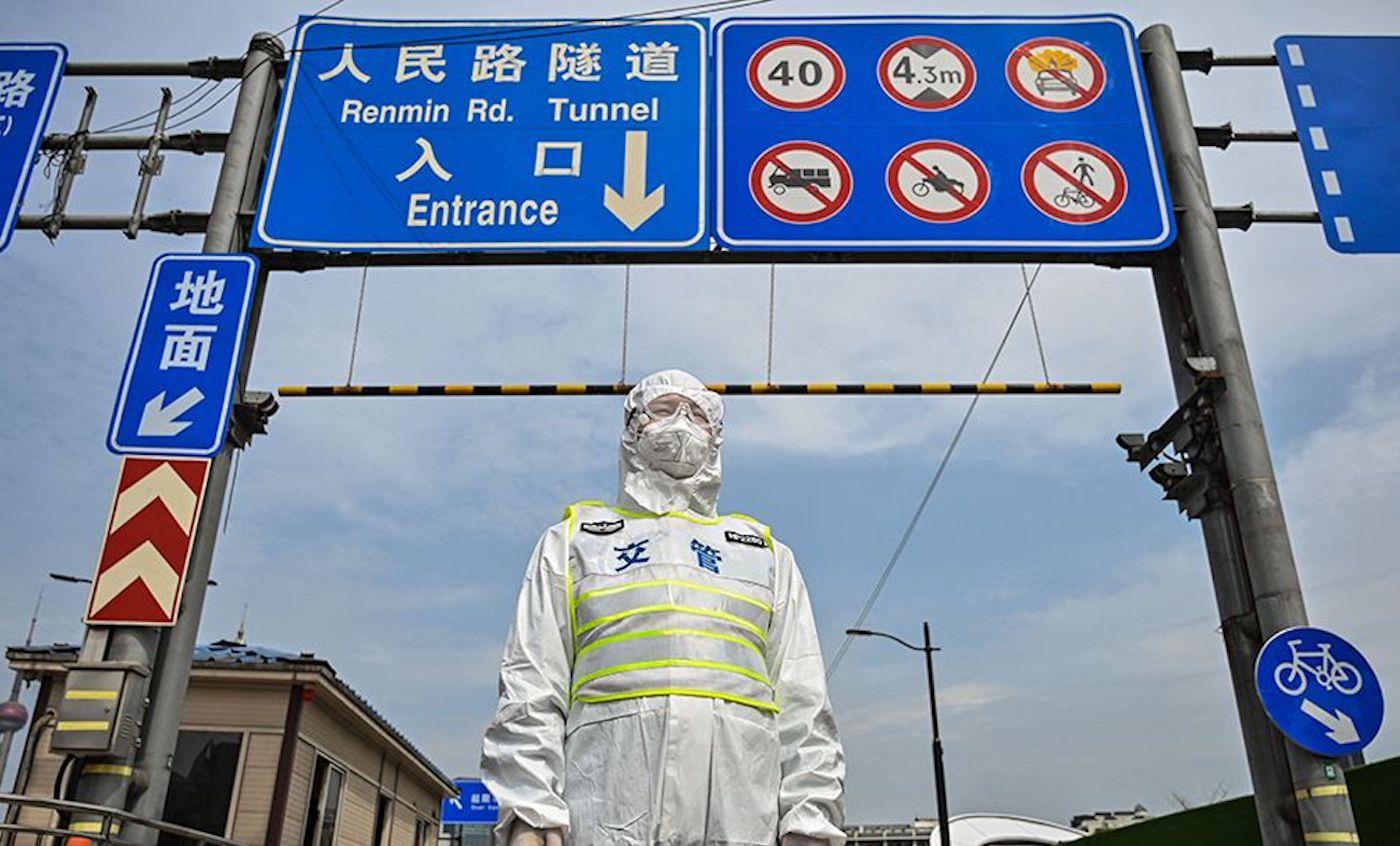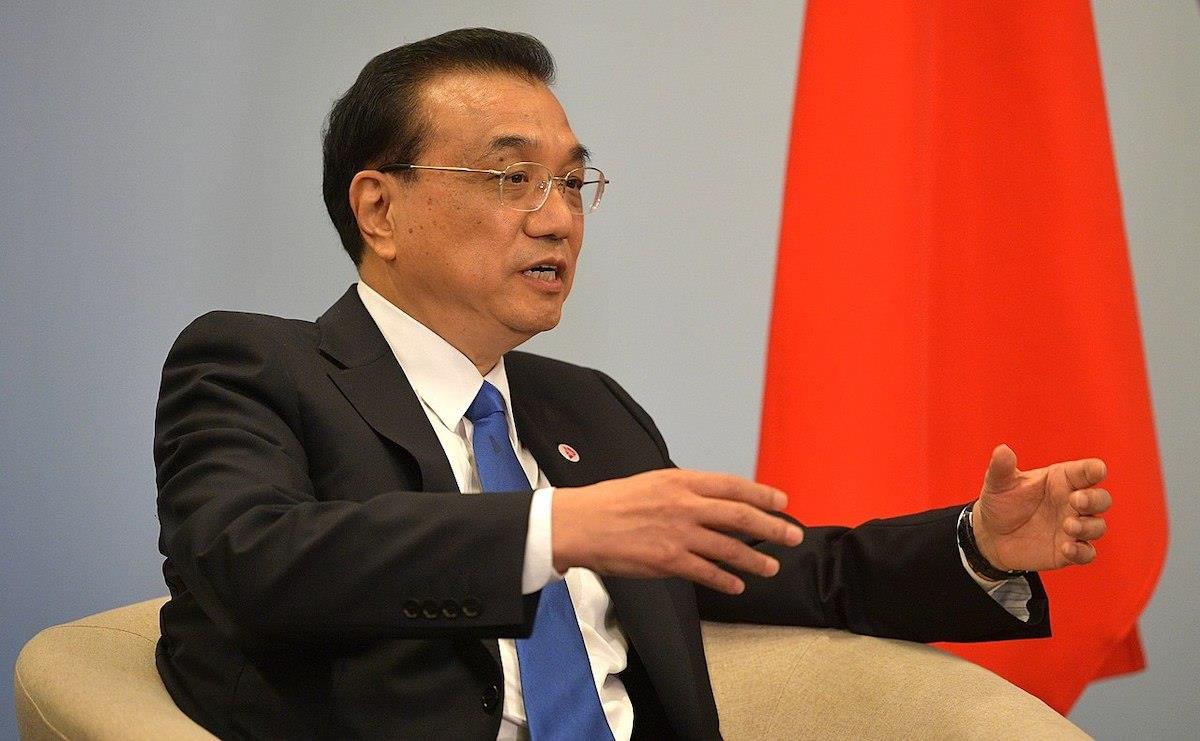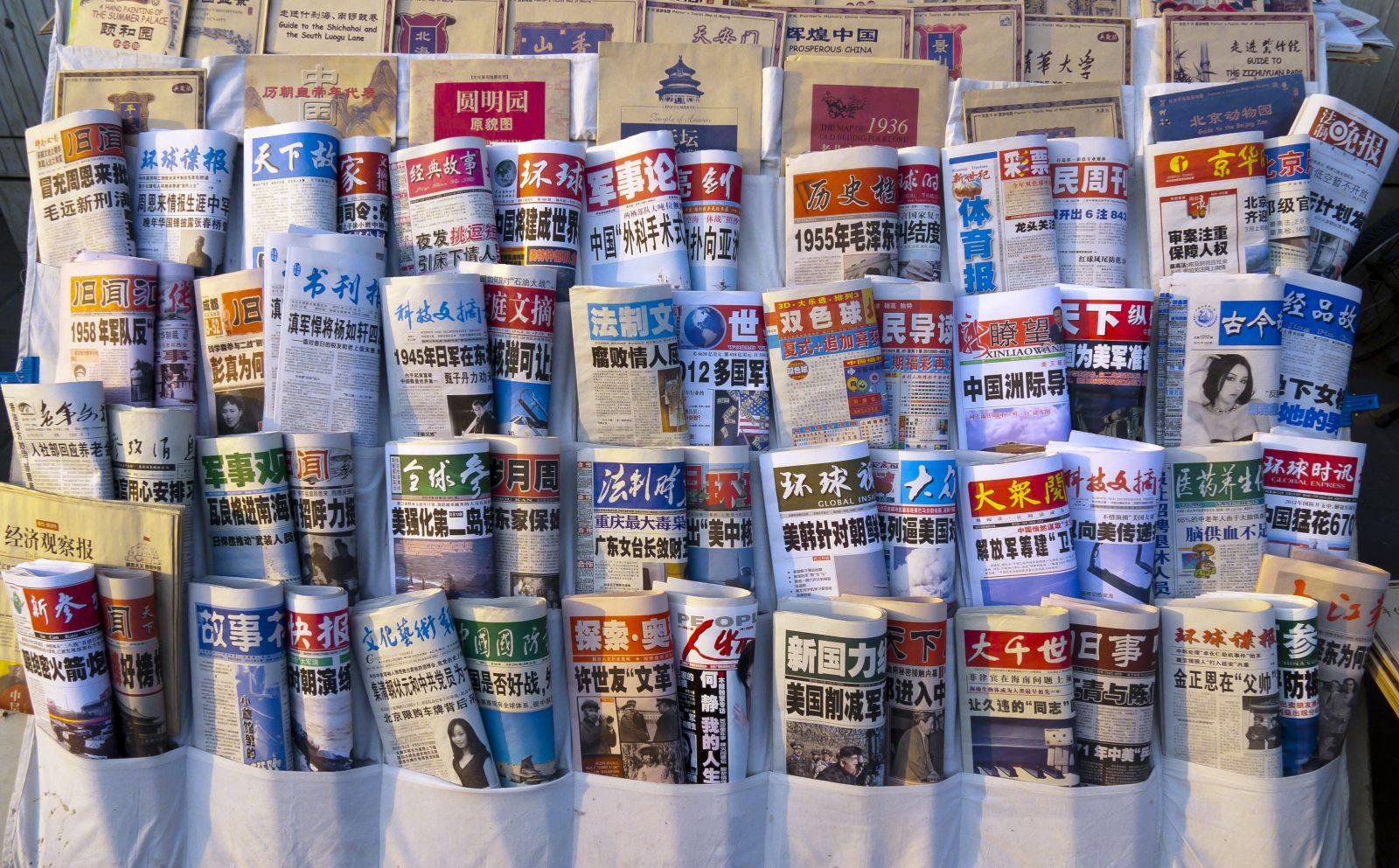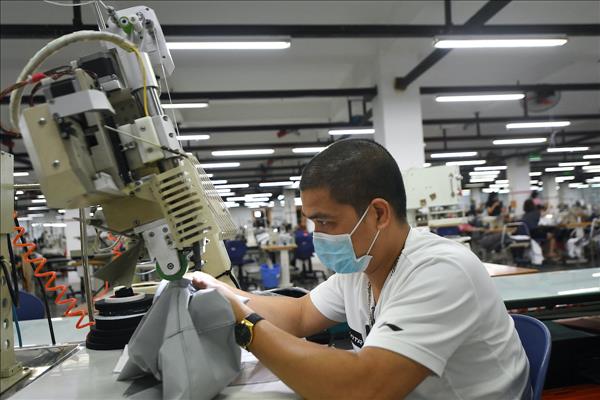
State Media Say Foreign Firms Should Stay In China
China's state media have called on foreign investors to stay in the world's second-largest economy after Beijing's foreign exchange reserves fell for the fourth consecutive month in April due to capital outflows.
A commentary published by the Xinhua News Agency said China's zero-Covid policy not only created a healthy, safe and stable environment for the country's development, but also provided certainty to the global economy.
It said foreign investors should keep an eye on long-term growth in China, instead of looking for other alternatives.
Another opinion piece published by the Global Times said China would continue to treat foreign firms with kindness and make them an important part of Chinese markets.
The calls came after the American and European chambers of commerce said many of their members were considering moving away from China or reducing their investment in the country as their operations were seriously affected by city lockdowns.
Meanwhile, analysts expect Vietnam to surpass Southern China's Guangdong province in terms of exports as it had chosen to live with the virus.
Since Shanghai was locked down on March 28, business activities have slowed across different sectors in China. As of Monday, 980,000 people in 4,271 districts still could not leave their homes, while 3.28 million people in 17,027 districts were not allowed to leave their villages in Shanghai.
Wu Jinglei, the director of the Shanghai Municipal Health Commission, said Monday that 69 Covid infections and 869 asymptomatic cases were identified in Shanghai on Sunday, all found in the closed-loop environment.

Many say China's efforts to contain Covid-19 through tough lockdown measures are missing the mark. Photo: Screengrab / BBC Infections dropping
Zong Ming, the vice-mayor of Shanghai, said Sunday had been the first day the daily number of Covid infections in Shanghai dropped below 1,000 since late March. Zong said more restricted areas in Shanghai would reopen between Monday and May 21, while the city would move to adopt a“regular epidemic prevention and control” strategy between May 22 and 31.
He said all productions and business operations in the city would be resumed by mid-June.
From Monday, more factories would resume production, but the employees of non-manufacturing companies would still have to work from home, Zong added. Supermarkets, highways and schools would reopen in several phases, while domestic flights would resume, he said.
It remains to be seen whether these relaxations are enough to change the minds of foreign firms, which have previously vowed to move out from China amid the country's stringent anti-epidemic measures.
On May 5, the European Chamber of Commerce said in a survey that China's Covid-19 policy and Russia's war in Ukraine were creating severe challenges to European business operations, with logistics suffering the most overall.
It said as a result of China's zero-Covid policy, 23% of respondents were now considering shifting current or planned investments out of China to other markets. It said the figure more than doubled the number that were considering doing so at the beginning of 2022, and was also the highest proportion in a decade.
On May 9, an American Chamber of Commerce in China survey showed that the share of respondents reporting an impact from Covid restrictions rose by 4 percentage points to 58% in late April from a month ago.
About 53% of respondents to the survey said they would reduce investment in China if Covid controls would persist for the next year.
The politburo of the Communist Party of China's (CPC) Central Committee, which includes 25 political leaders, held a meeting on April 29 and said there was an urgent need to stabilize China's economy and job markets.

Premier Li Keqiang has been pushing for the economy to restart. Photo: WikiCommons Li Keqiang pushes forward
Since then, Premier Li Keqiang has held different meetings with officials to push forward the resumption of production and business operations in the country, particularly in Shanghai.
Newly-announced economic indicators showed that the Chinese economy had been hit by virus outbreaks and city lockdowns in April. On Monday, the National Bureau of Statistics (NBS) said China's domestic consumption fell 11.1% in April from a year ago, while industrial added value dropped 2.9%.
It said fixed-asset investment declined 0.82% in April from March.
In April, the unemployment rate in urban areas rose to 6.1% from 5.8% in March. In the age group between 16 and 24, unemployment surged to 18.2% from 16% for the same period.
The year-on-year growth rate of foreign direct investment (FDI) eased to 4.2% in April, compared with 25.6% in the first quarter, according to the data announced by the Ministry of Commerce on May 12.
The State Administration of Foreign Exchange said on May 7 that China's forex reserves fell for the fourth consecutive month to $3.12 trillion in April, down 4% from $3.25 trillion at the end of last year.
Chinese state media recently started a round of propaganda campaigns, trying to persuade foreign firms to stay in mainland China.
“By sticking to its dynamic Covid clearance policy, China has achieved its goal of saving people and markets while minimizing the negative impact of the epidemic and stabilizing the anchor of Sino-foreign economic and trade cooperation,” said a commentary published by Xinhua on May 12.
“After taking such a strategy, China has the conditions to give full play to its advantages of manufacturing industries and super-large markets and provide scarce supply and demand for the global economy.”
Xinhua said the epidemic in Shanghai had been stabilized, showing the importance of China's zero-Covid policy to the entire world.
“Should companies only focus on immediate interests, worry too much about short-term gains and losses and turn to the so-called 'alternative options'? Or should they take a long-term view, maintain their determination and choose to work with China to overcome difficulties and create a better future? We believe wise entrepreneurs will make visionary choices,” it said.

Chinese newspapers at a newsstand. China's propaganda machine has been ramped up with stories aimed at foreign investors. Photo: iStock Media steps up to challenge
The Global Times said in an editorial on May 13 that China's FDI maintained a 20.5% year-on-year growth in the first four months this year, showing that foreign investors were confident in investing in the country.
It said some analysts used to claim that foreign capital was leaving China whenever there was any short-term fluctuations in the country's economy. It said, however, more and more investments from South Korea, the United States and Germany had flowed into China so far this year.
It admitted that the Russia-Ukraine situation, virus outbreaks in Chinese cities and hiccups in supply chains had created uncertainties to foreign firms in China, but added that the business situation would improve after the resumption of production and business operations in the country. It called on foreign investors to eye long-term gains.
In fact, many factories have moved from mainland China to Vietnam over the past few years due to lower labor costs in the Southeast Asia country. In the first quarter of this year, Vietnam's exports grew 13.4% to $89.1 billion from a year ago.
In March, the county's exports increased 14.8% year-on-year to $34.7 billion, while Shenzhen's fell 14% to 120 billion yuan, or $18.9 billion.
Chinese commentator Wu Xiaobo said Vietnam's exports almost doubled Shenzhen's and had reached 60% of those in Guangdong province. Wu said it's likely Vietnam would surpass Guangdong in exports in the coming years, but added that people should not be worried too much as the two places were making different products.
The Saigon Times reported on April 14 that Vietnamese firm Van Thinh Phat, Japan's ORIX Corp and Hong Kong's CK Asset Holdings were working with the local government to explore investment opportunities in Ho Chi Minh City.
Read: China restricts travel abroad to keep money at home

Legal Disclaimer:
MENAFN provides the
information “as is” without warranty of any kind. We do not accept
any responsibility or liability for the accuracy, content, images,
videos, licenses, completeness, legality, or reliability of the information
contained in this article. If you have any complaints or copyright
issues related to this article, kindly contact the provider above.


















Comments
No comment